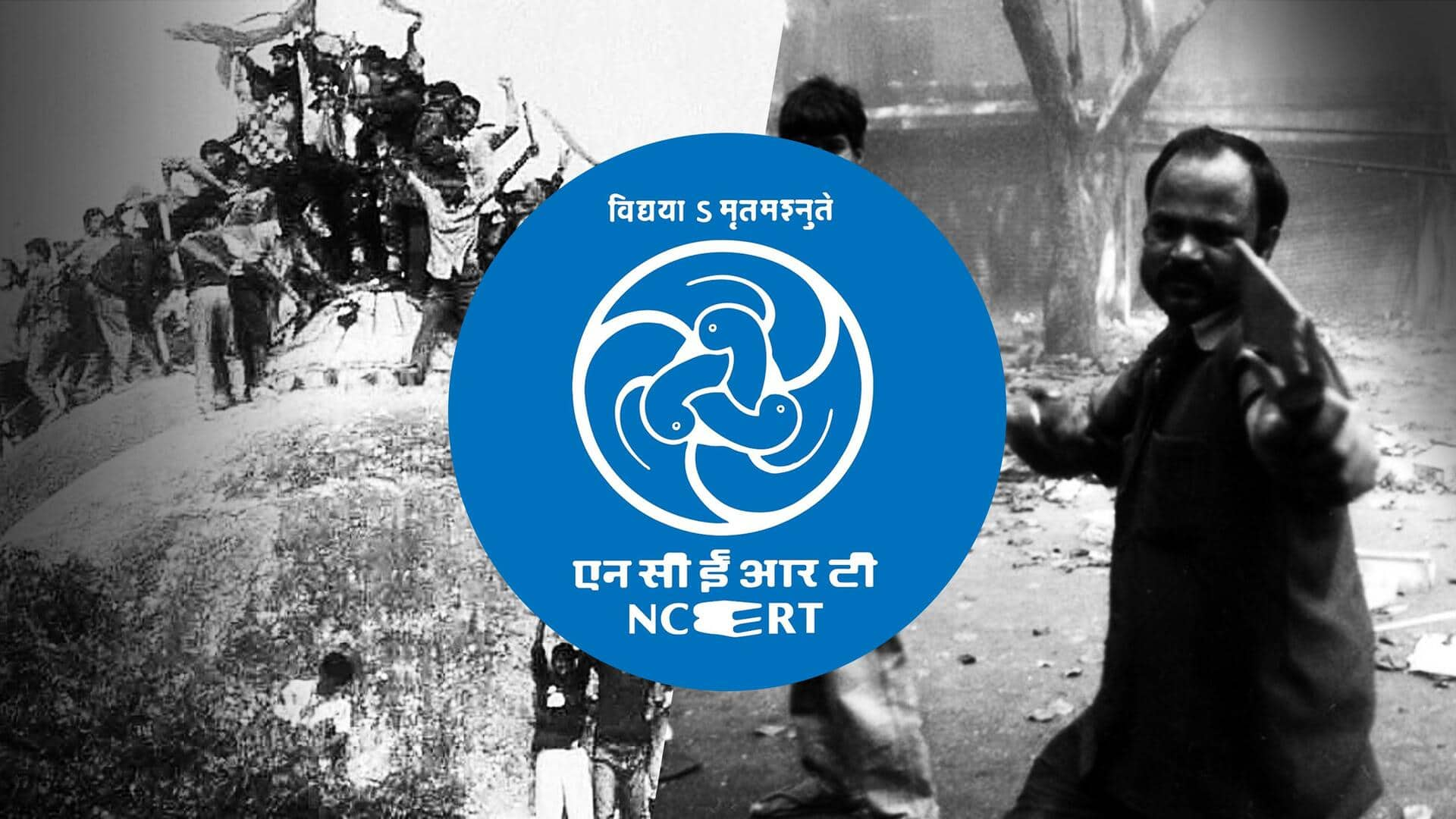
NCERT drops mentions of Babri, Gujarat riots from Class-12 textbook
What's the story
The National Council for Educational Research and Training (NCERT) has made substantial revisions to the political science textbook for Class 12.
The changes, which will be implemented in the current academic year, include the removal of certain references to the Babri Mosque, Hindutva politics, the 2002 Gujarat riots, and minorities.
These updates were made public on the NCERT website and will affect approximately 30,000 schools in India that follow the Central Board of Secondary Education (CBSE) curriculum.
Context
Why does this story matter?
This marks the fourth round of revision and updating of NCERT textbooks since 2014.
The first, labeled a "review" in 2017, aimed to "update textbooks to reflect recent events, changes."
In 2018, NCERT initiated "textbook rationalization" to alleviate the "syllabus burden."
Another round was announced less than three years later. The official aim of this was to further reduce curriculum load and aid students in recovering from learning disruptions due to the Covid-19 pandemic.
Syllabus revision
Details of changes in Chapter 8
One of the changes pertains to Chapter 8, titled "Recent Developments in Indian Politics." Here, all mentions of the "Ayodhya demolition" have been removed.
Another chapter titled "What is the legacy of the Ram Janambhoomi movement and the Ayodhya demolition?" has been revised to "What is the legacy of the Ram Janmabhoomi movement?"
The same chapter also saw the removal of references to Babri Masjid and Hindutva politics.
Content update
Removal of references to Babri Masjid and Hindutva politics
The revised paragraph now reads, "Fourth, the centuries-old legal and political dispute over Ram Janmabhoomi Temple in Ayodhya started influencing politics of India which gave birth to various political changes."
"These changes culminated in construction of Ram Temple at Ayodhya following decision of constitutional bench of Supreme Court (which was announced on November 9, 2019)."
Textbook revision
Changes in Chapter 5
Similarly, Chapter 5, "Democratic Rights," underwent changes in a news collage caption where a reference to the Gujarat riots was removed.
The revised text now reads: "Many cases of human rights violations in diverse fields are being brought to public notice from across India."
NCERT justified this change by stating that "the news collage and content refer to an incident that is 20 years old and has been resolved through the judicial process."
Syllabus update
Alterations in references to the Muslim community
The mention of the Muslim community has also been changed in the same chapter in other places. A statement about Muslims being "deprived" of development benefits was removed.
The revised text now reads: "According to 2011 census, Muslims are 14.2% of India's population and are considered to be a marginalized community because of their having comparatively lower status of socio-economic development."
Textbook modification
Phrasing changes in chapter on 'Secularism'
Another chapter named "Secularism" also saw a revision. Here, the phrasing describing 2002 riot victims was altered.
"More than 1,000 persons, mostly Muslims, were massacred during the post Godhra riots in Gujarat in 2002," was changed to "more than 1,000 persons were killed during the post Godhra riots in Gujarat in 2002."
NCERT explained this change by stating that "in any riots people across communities suffer. It cannot be just one community."